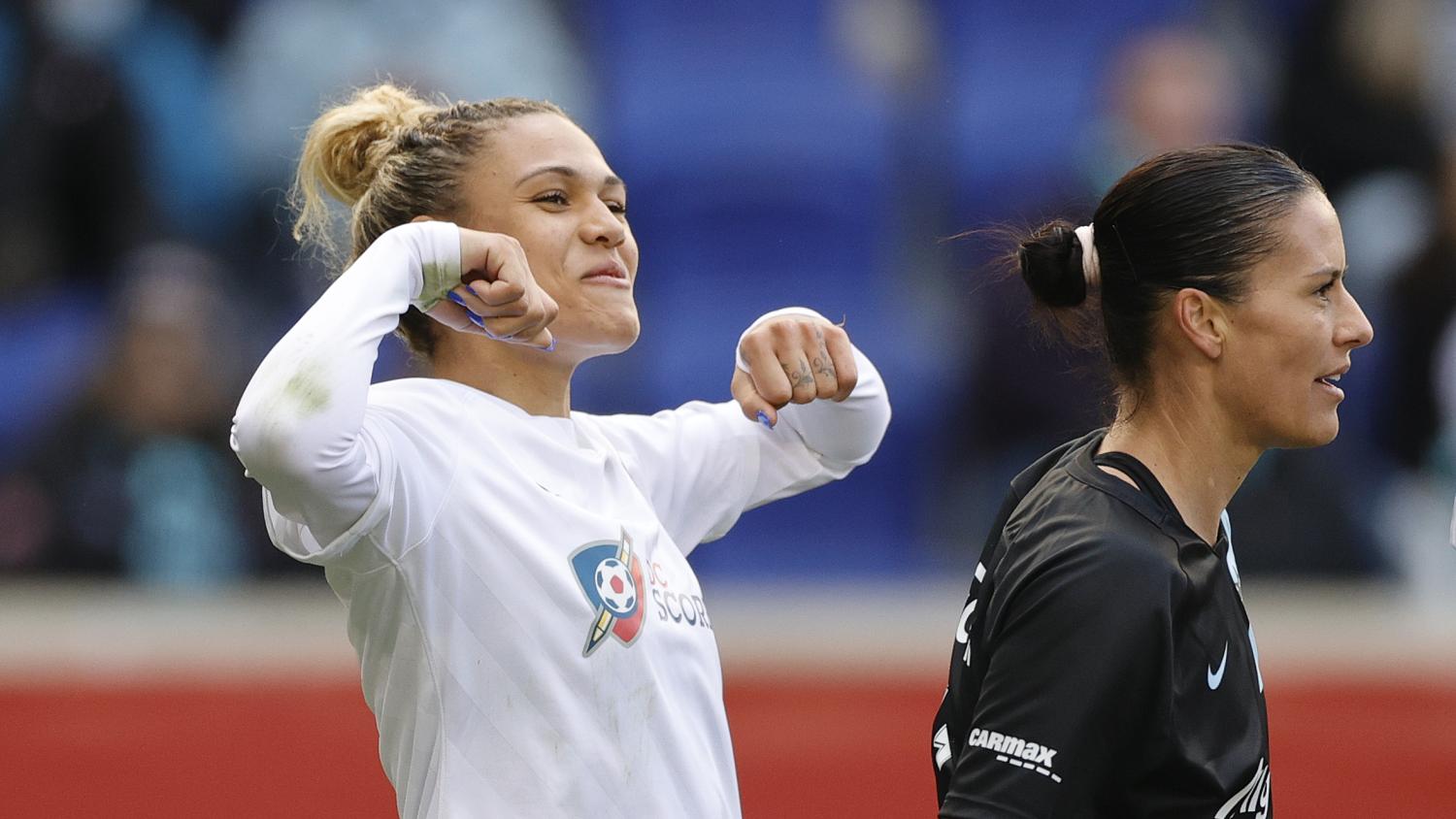When the Houston Dash won the 2020 Challenge Cup, it was a landmark moment for the National Women’s Soccer League. As the first professional team sport to return to play in the U.S. after Covid-19 shut the sports world down, the NWSL set the example for how leagues like MLS and the NBA could resume during a pandemic. For the players, however, there wasn’t much incentive to win beyond a bunch of Budweiser.
That’s all changing with a new relationship between the NWSL and UKG, an HR/payroll company investing heavily in making the gender pay gap disappear. The two organizations announced a partnership on Friday that will ensure the NWSL Challenge Cup prize money will increase tenfold in 2022 before doubling in 2023 to achieve pay equity with U.S. men’s tournaments. The 2022 Challenge Cup final is Saturday between the N.C. Courage and Washington Spirit.
United in keeping the game growing The NWSL welcomes @ukginc as the league's newest partner in historic deal
— National Women’s Soccer League (@NWSL) May 6, 2022
The multimillion-dollar, multi-year partnership will see the NWSL Challenge Cup prize money pool increase to $1 million in 2023, which will bring it on par with the 2020 MLS Is Back Tournament. This season, winning players will receive $10,000 each, with the runners-up receiving $5,000. The semifinalists will each receive $1,500. (For those not doing the math at home, this means previously players received $1,000 for winning the Challenge Cup.) UKG will become the title sponsor of the tournament.
NWSL Challenge Cup Prize Money
- 2022: $10,000 for winners
- 2023: $1 million prize pool
“We couldn’t be more thrilled to have a partner like UKG, a brand with whom we have shared values,” NWSL commissioner Jessica Berman said in a statement. “Our partnership is purpose-driven, and we believe that will eventually lead to broader impactful change, not only for women in professional sports but for women and underrepresented groups worldwide who have advocated tirelessly for the equity they deserve.”
The UKG-NWSL deal was announced a day before the 2022 NWSL Challenge Cup final, which will see the N.C. Courage host the Washington Spirit at 1 p.m. ET on Saturday. The match will be broadcast nationally on CBS and be available for streaming on Paramount+.
How To Watch NWSL Challenge Cup Final
- When: 1 p.m. ET, Saturday, May 7
- Where: WakeMed Soccer Park, Cary, North Carolina
- TV: CBS
- Streaming: Paramount+
The announcement also comes on the heels of the NWSL’s first-ever CBA, which was signed earlier this year. For the first time, the league’s players were guaranteed a living wage. Now they’ll have a chance to earn even more money in the Challenge Cup, though everyone might be chasing 19-year-old Spirit star Trinity Rodman, who in February signed the richest contract in league history.
In addition to increasing NWSL Challenge Cup prize money, UKG is partnering with Angel City’s Christen Press and Orlando Pride’s Sydney Leroux to advocate for closing the pay gap. Every year, UKG contributes 18 cents — the current gender wage gap — for every employee paid via its payroll services toward programs and organizations fighting to close the wage gap. This equates to about $3 million per year.
“Every player in this league has worked their whole life to play professional soccer and have the means to support themselves and their families,” Sydney Leroux said in a statement. “Pay equity goes beyond the average 18 cents less that women are paid for every dollar that a man is paid — it is about people wanting to live the same quality of life, have the same opportunities, and live the same dreams as others doing the same work.”
While the focus this weekend will be on the NWSL Challenge Cup finale, the regular season started last week. In addition to the Spirit-Courage match, four other games are on the NWSL schedule this weekend, giving fans plenty to watch.
While there have been some complaints about the NWSL Challenge Cup given the oddities in scheduling and the large number of devastating injuries this year, increasing the prize money in such a meaningful way will ensure the competition remains a large part of women’s soccer in the U.S. for years to come.




